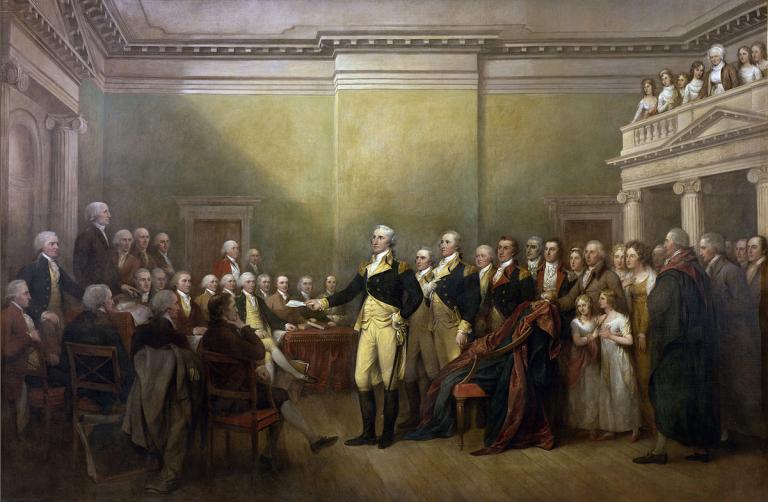
Does the President of the United States have immunity while in office no matter what he does, including the hypothetical scenario of shooting someone on 5th Avenue in New York City? According to his lawyer, yes. Does the President have the right according to the Constitution to reject congressional oversight in all areas of Presidential conduct? Yes, according to the Justice Department. Such claims to Presidential immunity are some of the latest moves to expand executive power.
These assertions are hailed as unprecedented developments in affirmation of Presidential power, though the expansion of the power of the executive branch has increased steadily for decades. Take for example a Smithsonian article whose title and tagline read: “Power and the Presidency, From Kennedy to Obama”—”For the past 50 years, the commander in chief has steadily expanded presidential power, particularly in foreign policy.”
Speaking of President Obama, a 2016 New York Times article documented Obama’s once skeptical view of executive power and how executive power increased dramatically during his time in office. A 2017 Fortune article leads off with this title: “The Dangerous Powers Obama Left in Trump’s Hands.” For all his criticisms and attempts at dismantling Obama’s legacy, Trump has this much to thank his predecessor for—the continued expansion of executive power.
Of course, Obama is not the only prior President responsible for the steady increase of executive power. President George W. Bush made his indelible imprint on expanding executive power during his tenure in the Oval Office, a point made in some of the articles already noted.
What is most striking, though, is where we stand presently. In addition to the claims highlighted at the outset of this post on Trump’s lawyer and Justice Department on immunity for the President, one would be hard-pressed to find such sweeping disregard for the media by a sitting President. Bush argued that the media is critically important to holding accountable governing officials, including the President. Countering Trump’s claim that the media is the “enemy of the people,” Bush has asserted that the media is “indispensable to democracy.”
In addition to the important role the media plays in holding governing officials accountable, the balance of power between the three branches of the federal government established by the Founding Fathers is critical to our democracy. It appears that the founding government understood well human depravity and frailty, and how unchecked power caters to the lesser angels of our human nature. The Constitution’s framers instilled checks and balances in power between the Executive, Legislative and Judicial branches to guard against autocracy, as noted in a recent New York Times article titled “What Happens When a President and Congress Go to War?”:
The power struggle between the branches playing out now is what the framers relied on and expected. The checks and balances of American governance are at once fragile and durable, and they’ve been recalibrated in times of crisis. The impeachment process can be the focal point for propelling Congress to reclaim its coequal place. “Disputes between Congress and the president are a recurring plot in our national story,” Judge David Tatel of the U.S. Court of Appeals for the D.C. Circuit wrote in October, in a ruling for Congress (by a vote of 2 to 1) in a case, separate from impeachment, concerning whether it can subpoena the president’s tax returns. Tatel quoted Justice Louis Brandeis, in a dissenting opinion from 1926: The purpose of the separation of powers was “by means of the inevitable friction incident to the distribution of the governmental powers among three departments, to save the people from autocracy.”
While it might not happen during the current Presidential administration’s tenure, it is critically important that equilibrium by way of equality between the three branches transpires soon. As the old saying goes, power corrupts. Absolute power corrupts absolutely.
Certainly, democratic checks and balances can appear inefficient. To be sure, appearances can become reality when partisan rancor crushes the spirit of collaboration for the sake of good governance and society’s well-being. What gives me a sense of hope is when I see career employees of the executive branch who have worked under various administrations willing to testify in obedience to Congressional order rather than adhere to a White House directive demanding their refusal. Why hope? Because they are willing to risk their jobs and possibly even their pensions in refusing to adhere to the directive. They appear to understand that their testimony is critical to our democracy’s durability. I experience the same sense of hope when I find legislators on either side of the aisle being willing to counter their own party when they find party loyalty matters more than loyalty to justice for all. One of the most inspiring and important examples of loyalty to the people in our country’s history occurred when George Washington relinquished his role as commander-in-chief of the Continental Army to Congress, rejecting the temptation to enshrine a personality cult and despotic rule, making way for a civilian government. While the checks and balances on power in our democracy have always been fragile, without these checks and balances autocracy is fast-approaching.
Ultimately, the hope noted above lies not with the executive, legislative or judicial branch, but with the people, since “‘The accumulation of all powers, legislative, executive and judiciary, in the same hands,’ James Madison wrote in 1788, ‘may justly be pronounced the very definition of tyranny.’” Like those employees who may face severe backlash by their own governmental branch, it is up to all of us, no matter our political party stripe, to be diligent and ensure that what Abraham Lincoln called the “government of the people, by the people, for the people” does “not perish from the earth.”












